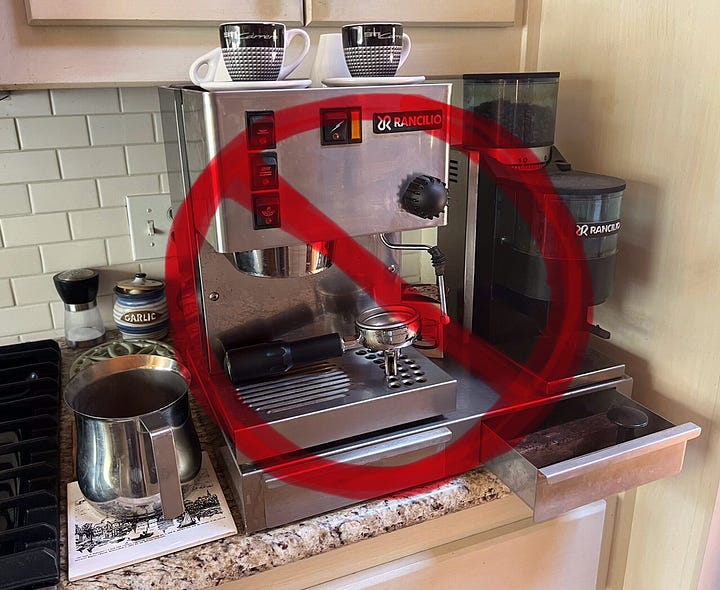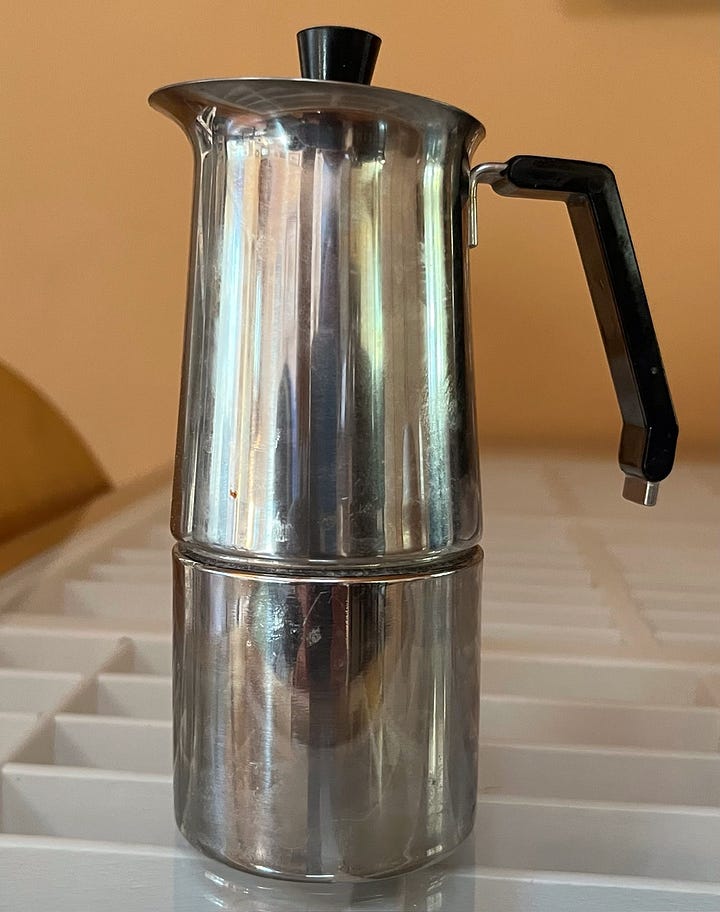Article by Jonathan Lewis


How many times have you said or heard someone say I liked the book better than the movie? Think of your time on the water as the book. Spending time aboard has gotten too complicated with all the various electronic gadgets and unnecessary aids. Items that sometimes make things easier, entertaining, or even safer are often detrimental to the experience.
When I first lived aboard in the seventies it was common to have a passing dinghy’s occupants ask if I had any books I’d like to trade. I usually had several paperbacks I’d be willing to part with. A couple of decades later, that question morphed into a request for DVDs. I was no longer able to comply. The pleasure of reading, and the accompanying sensations from that activity, had been replaced with the less demanding and less fulfilling experience of watching a television.
I’m confident many of you aboard small craft have a routine after a night on the hook or ashore—preparing a morning beverage to begin your day. My chosen “cuppa” is a cappuccino. At home this is accomplished by using a commercial-quality espresso machine and grinder/doser. I switch it on and while waiting for the boiler to reach temperature, I hit another switch and grind the beans and dispense them into the heavy group handle. After the hot water is forced through the fine grinds, I stick my stainless pitcher under the wand and my milk magically becomes a frothy and foamy additive. This operation is very different onboard. I manually grind the beans, unscrew my Bialetti Moka stovetop espresso maker, and add water to the base and coffee to the basket before reassembling it and placing it on the heating element of my Wallace stove. Then I begin preparing the instant non-fat dry milk in a separate container that utilizes a plunger to create foam once the reconstituted milk is at temperature. The sound of the almost-boiling water forcing its way vertically through to the upper chamber in the coffee contraption is both recognizably familiar and marvelous. While the entire operation is labor intensive and produces a liquid that wouldn’t be suitable served at either my abode or Starbucks, that brew is infinitely more pleasing afloat than any terrestrial coffee I’ve consumed.
Our time on the water is so precious it shouldn’t be encumbered by mistakenly trying to recreate parts of our shoreside existence. As another example, I believe refrigeration on a small boat is a detriment. Besides the amperage demands it places on our minimal battery capacity, it also changes our food consumption. My wife and I garner so much satisfaction finding alternatives for mealtimes that require zero refrigeration. Eggs need no refrigeration. Mayonnaise needs no refrigeration (if not mixed with another ingredient.) There are so many options if canned or packaged foods are added to your menu—and fresh fruits and vegetables have a reasonable shelf life, especially if you’re on a short cruise. Tasty Bite makes a range of Indian cuisine in vacuum-sealed packages that heat in four minutes on a stovetop. Hereford offers meatballs with spaghetti sauce and Barilla Ready Pasta in a pouch comes fully cooked and can be conveniently added to numerous delicacies. Pasta, rice and gnocchi have become staples. An occasional Dinty Moore Beef Stew or Progresso New England Clam Chowder at the end of a long cold day in the cockpit tastes mighty fine with zero fuss.
That these behemoths no longer provided a tactile relationship to the environment was of little concern to the people getting away from it all while taking it all with them.
When multihulls became ubiquitous in the charter business and then a common choice for one’s own sail or powerboat, something was lost. Their ability to anchor in a secluded cove with eight or ten people on board enjoying their music, movies and revelry with huge amounts of square footage above and below, and no heeling, changed everything. Countertops with blenders, coffee makers, microwaves and cabinets with dishwashers, washing machines, freezers and convection ovens became the norm. That these behemoths no longer provided a tactile relationship to the environment was of little concern to the people getting away from it all while taking it all with them. I heard one owner comparing her cruising trimaran to a Manhattan apartment.
So I believe this is a cautionary tale that those of us in smaller craft. Continue to take pride and pleasure in the basics as demonstrated by folks like Roger Barnes, John Welsford and Iain Oughtred. Contemplate the ramifications before bringing things aboard that may make your life simpler, but complicate and diminish your gratification. And by all means, bring a book. •SCA•
In the comments below, tell us about your own small-boat amenities and luxury items, and what you choose to do without. —Eds



There is a reason senior cruisers are downsizing and simplifying while youngsters are “trading up”. It is called wisdom. Some people acquire it faster.
Insightful views from Jonathan Lewis! Our boats have gotten larger and easier as we've gotten older. Now the lessons we've learned at sea also inform life on land. Time aboard is the best teacher in the arts of downsizing, rightsizing, and uncomplicating return to the hard.